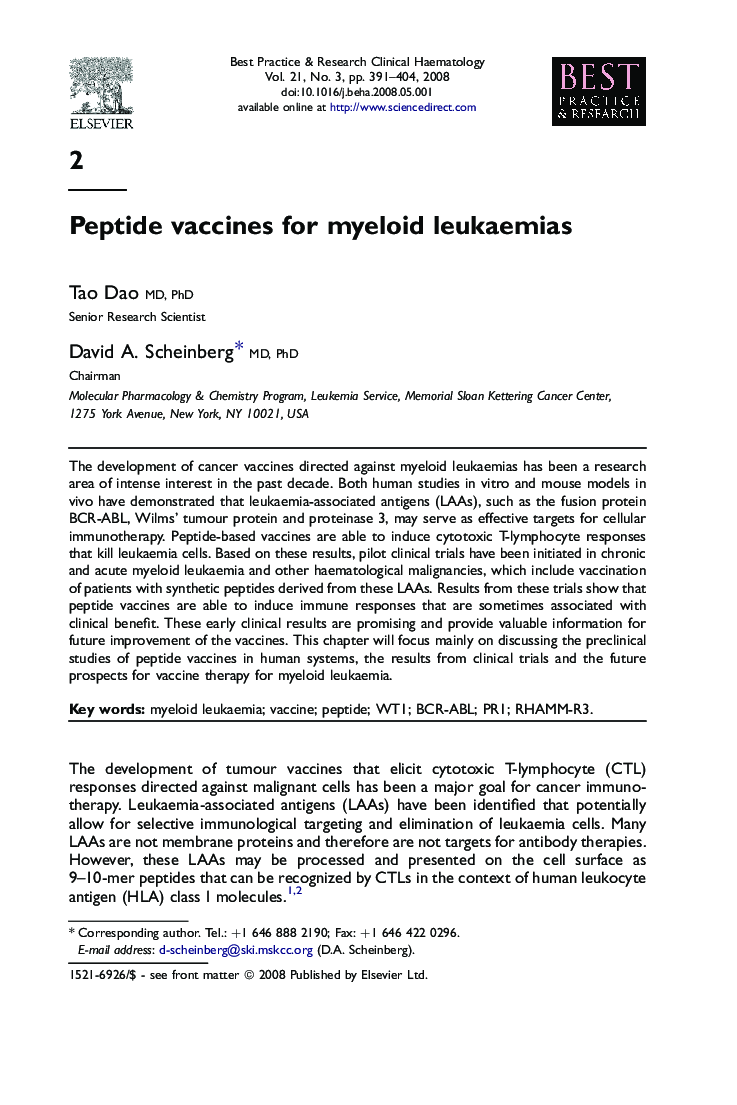| Article ID | Journal | Published Year | Pages | File Type |
|---|---|---|---|---|
| 2100783 | Best Practice & Research Clinical Haematology | 2008 | 14 Pages |
The development of cancer vaccines directed against myeloid leukaemias has been a research area of intense interest in the past decade. Both human studies in vitro and mouse models in vivo have demonstrated that leukaemia-associated antigens (LAAs), such as the fusion protein BCR-ABL, Wilms' tumour protein and proteinase 3, may serve as effective targets for cellular immunotherapy. Peptide-based vaccines are able to induce cytotoxic T-lymphocyte responses that kill leukaemia cells. Based on these results, pilot clinical trials have been initiated in chronic and acute myeloid leukaemia and other haematological malignancies, which include vaccination of patients with synthetic peptides derived from these LAAs. Results from these trials show that peptide vaccines are able to induce immune responses that are sometimes associated with clinical benefit. These early clinical results are promising and provide valuable information for future improvement of the vaccines. This chapter will focus mainly on discussing the preclinical studies of peptide vaccines in human systems, the results from clinical trials and the future prospects for vaccine therapy for myeloid leukaemia.
